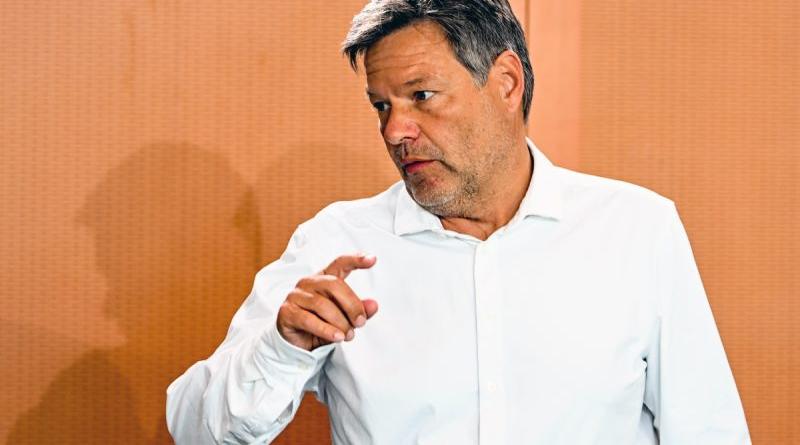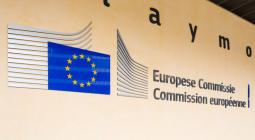Berlin launches €50 billion ‘climate contracts’ for industry

As Germany’s 2045 climate neutrality target looms, the government is launching a multi-billion euro ‘Carbon Contracts for Difference’ scheme to help bridge the investment gap between clean tech and polluting technologies.
Germany aims to decarbonise its industrial production entirely by 2045, but with the EU’s carbon price currently hovering at around €100 per tonne, investments in clean manufacturing processes are still not competitive.
The German “Carbon Contracts for Difference” (CCfD) scheme aims to bridge this gap.
“With this modern funding instrument, we are setting international standards and ensuring that the funds flow to where they are needed for the transformation of industry and bring the greatest benefit,” said Robert Habeck, minister of economy and climate action, when presenting the scheme in Berlin on 5 June.
“It is a new instrument,” he noted, saying a similar measure had only been implemented in the Netherlands.
Companies applying for the scheme must submit a fictional CO2 price that would allow them to develop clean production while remaining competitive against rival companies running on fossil fuels.
A steelmaker switching to green hydrogen, for instance, may require a CO2 price of €300 per tonne to be competitive, meaning €200 of state subsidy would be needed for each tonne of CO2 avoided.
Starting on 8 June, initial submissions of interest are open for industrial sectors like cement, steel, chemicals, glass and paper. The government hopes to be able to award the finalised contracts within the year following a competitive bidding process.
“It’s not just about the big industrial heavyweights in Germany, but also about the broadest possible participation of German SMEs. The prerequisite for this is that production takes place in a climate-neutral manner,” said Habeck.
Climate-neutral in this instance means running on 100% renewable electricity – and using hydrogen that conforms to the EU’s green finance taxonomy.
Notably, this means that using hydrogen derived from fossil gas with subsequent carbon capture and storage (CCS) will be eligible for support too, a move understood to be a condition imposed by Christian Lindner, the country’s liberal Finance Minister.
Green hydrogen, produced using renewable electricty, will receive higher subsidies, though, the government says.
The scheme is expected to save 350 million tonnes of CO2 over its lifetime – a third of German industry’s path towards climate neutrality.
€50 billion over 15 years
CCfDs are awarded over a 15-year-period and will come with a price tag of around €50 billion. In theory, the scheme is expected to return money to taxpayers once the carbon price hits the level submitted by the companies covered by the scheme, with the difference funnelled into state coffers.
In practice though, experts have raised doubts about the government’s ability to resist industry lobbying in the name of continued competitiveness once the “strike price” is reached. The instrument itself is largely untested and was first proposed in 2017.
While Berlin awaits approval from the European Commission’s state aid authorities, Habeck expressed optimism that it will be approved.
“We are in permanent contact and wouldn’t be presenting the scheme if there wasn’t basic approval,” said Habeck.
Unlike traditional industry support schemes, which help with investments, Germany’s CCfDs will cover running expenses (OPEX), Habeck further noted.
Funding for operating expenses outside an acute crisis is a novelty for Europe, as fear of it being abused or stifling innovation long prompted Brussels to ban it entirely. Instead, EU schemes traditionally support initial investments (CAPEX), like in the various “Important Projects of Common European Interest” (IPCEI) scheme to support innovation.
But the USA’s $300 billion Inflation Reduction Act, a major industry support scheme, changed this paradigm.
“We associate with this instrument not only climate protection, but also a response to the American Inflation Reduction Act,” Habeck told reporters.
[Edited by Alice Taylor and Frédéric Simon]
cover photo:Germany is launching a €50 billion scheme to boost the decarbonisation pace of its industry. [EPA-EFE/Filip Singer]





